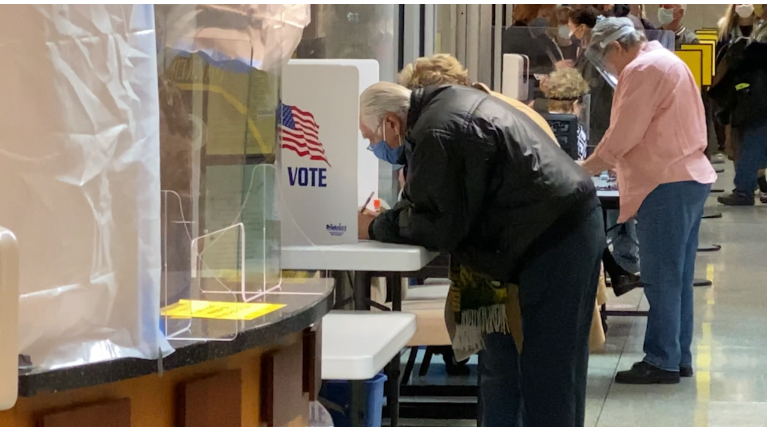The state Senate this week is set to consider a package of bills meant to bolster how local elections are conducted amid the COVID-19 pandemic.
The Democratic-controlled chamber plans on Tuesday to advance legislation that is aimed at expanding absentee ballot access, lowering petition requirements for the 2021 elections, allowing for the remote participation of party designation conferences, as well as protections for residents in nursing and long-term care facilities.
Taken together, the package builds off of statewide efforts to expand ballot access and accomodate social distancing concerns during the pandemic. Statewide, officials in 2020 made it easier to access an absentee ballot in order to reduce the number of people going to the polls in person — leading to a record number of absentee ballots in the vote last year.
Local elections, meanwhile, are being held this year, with village elections scheduled for March.
“Just as the work of government must continue despite this pandemic, we must also ensure our democratic processes and elections are protected,” Senate Majority Leader Andrea Stewart-Cousins said.
“Citizen participation in government, on all levels, is the very bedrock of our democracy. The legislation advanced by the Senate Democratic Majority will help ensure that the 2021 elections are able to run smoothly and be conducted with every effort taken to protect New Yorkers’ health. I thank the bill sponsors for their commitment to our democratic processes, and thank my colleagues for advancing these bills and protecting our elections’ integrity.”
Among the measures:
- Allowing voters to request an absentee ballot for upcoming village elections if they are concerned with contracting or spreading the coronavirus.
- Reducing the number of petition signatures needed for designating and nominating petitions.
- Allowing for remote participation of political party designations, allowing them to use video or telephone conferencing.
- Ensuring nursing home and long-term care facility residents willl have access to absentee ballots without elections inspectors having to physically enter the premises.



